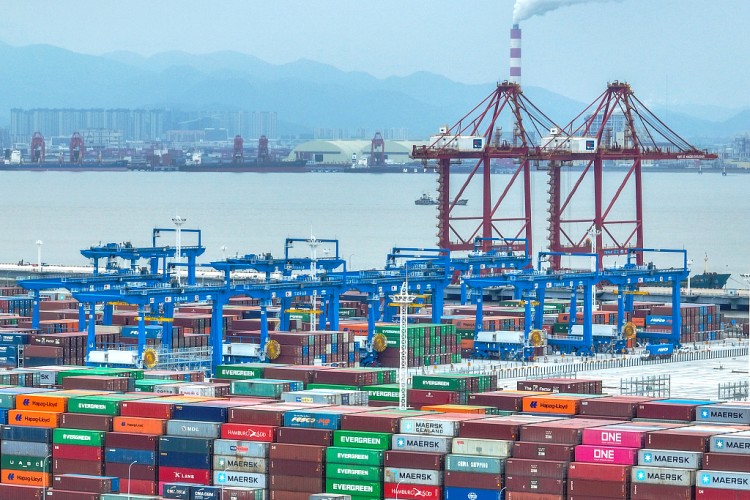China’s cross-border e-commerce industry is experiencing rapid growth, driven by favorable government policies, the establishment of comprehensive pilot zones, the accelerated global expansion of Chinese companies, and the increasing involvement of young people in the sector.
Data from the General Administration of Customs shows that China’s cross-border e-commerce trade rose 9.6% year-on-year to 577.6 billion yuan ($79.95 billion) in the first quarter of 2024. In 2023, the country’s cross-border e-commerce exports exceeded 1.8 trillion yuan, marking a 19.6% increase.
The rapid development of cross-border e-commerce exports has helped Chinese products reach global markets and injected new momentum into international trade. China now has more than 100,000 cross-border e-commerce entities and over 200,000 independent cross-border e-commerce sites, with the country’s support services for the industry also improving.
The establishment of comprehensive pilot zones for cross-border e-commerce has played a vital role in boosting the sector. Since 2015, China’s Ministry of Commerce (MOFCOM) has set up 165 such pilot zones, with the scale of cross-border e-commerce for enterprises in these zones accounting for over 95% of the national total.
MOFCOM has also stepped up efforts to roll out support policies for the comprehensive pilot zones, aiming to continuously improve supporting policies, enhance regulatory facilitation, and promote the high-quality development of cross-border e-commerce.
Chinese e-commerce giant Pinduoduo’s cross-border e-commerce platform, Temu, launched in September 2022, has helped quality products from over 100 manufacturing industry belts in provinces like Zhejiang, Guangdong, Shandong, and Anhui reach over 50 countries and regions.
In recent years, more Chinese companies, especially manufacturing enterprises with innovation capacity, have paid increased attention to exploring overseas markets through cross-border e-commerce platforms. This trend has not only brought more profits and business opportunities to these companies but also enriched overseas consumers’ consumption choices.
Moreover, many young Chinese people have chosen to host cross-border e-commerce livestreams. Lyu Shuxi, a student from the School of Foreign Studies at Yiwu Industrial and Commercial Vocational College, is a part-time host of cross-border e-commerce livestreams, often connecting with over 100 overseas consumers daily with a sales conversion rate exceeding 90%.
According to Li Mingtao, chief researcher of e-commerce at China International Electronic Commerce Center, cross-border e-commerce will be an important trend in the transformation and development of international trade, playing a crucial role in helping Chinese enterprises go global, build global brands, and expand their sales channels.
To further support the industry, China plans to cultivate 100,000 cross-border e-commerce talents this year, as the country faces a shortage of 15 million talents in industries like livestream e-commerce and cross-border e-commerce.













































